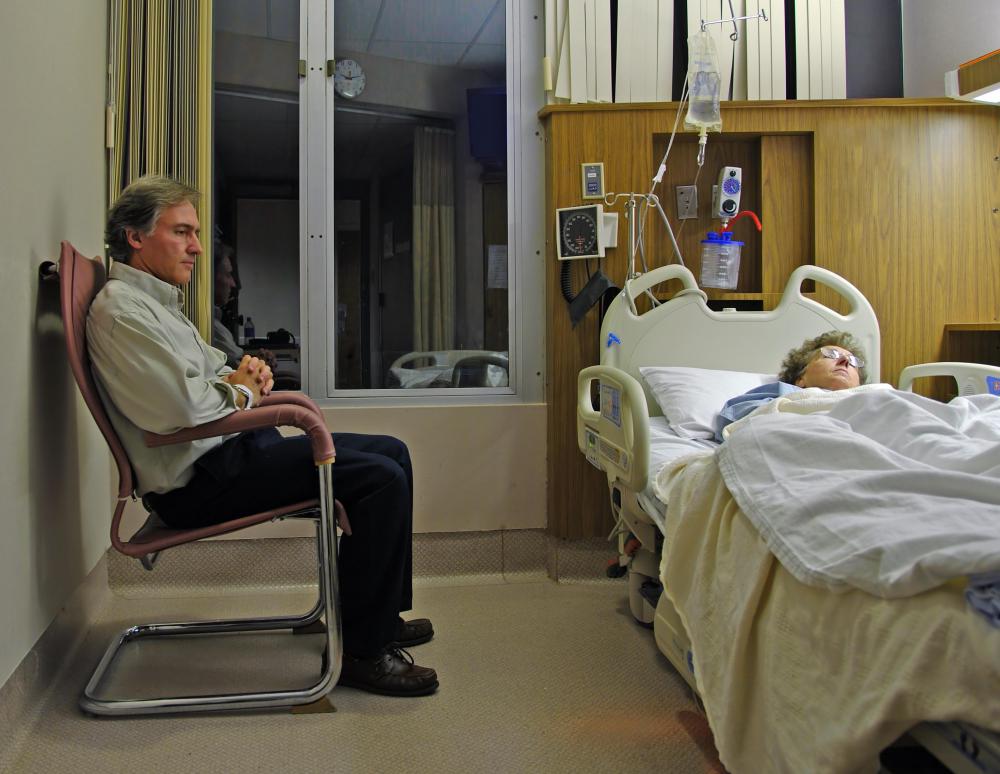At TheHealthBoard, we're committed to delivering accurate, trustworthy information. Our expert-authored content is rigorously fact-checked and sourced from credible authorities. Discover how we uphold the highest standards in providing you with reliable knowledge.
What is Laxative Abuse?
A laxative is any substance or medication that stimulates the body to release bowel movements. Laxative abuse is overuse of such substances, particularly stimulant drug based laxatives, for a variety of purposes. Some of the common reasons that people overuse laxatives, which for most people should only be taken occasionally as suggested by a doctor, is either because they are under the misguided impression this may cause weight loss, or because they suffer from bowel irregularity and believe they must have bowel movements each day. The former group is often made up of people who are struggling with eating disorders, and the latter is very frequently people who are older or who take medications (possibly abusing them) that create constipation.
There are many reasons not to practice any form of laxative abuse. It does not promote weight loss, but many people who overuse laxatives for this reason may have experienced some weight loss when they first began using these medicines. Taking more than prescribed or recommended amounts of laxatives does certainly cause water loss, and this is part of the reason why abuse becomes dangerous. It’s quite possible for people to become dehydrated, have their electrolytes become unbalanced, or to be very sick as a result, which would include nausea, vomiting, fainting, and possibly coma.

Other risk factors of laxative abuse include the fact that it can in time impair the way the colon works, making it very hard to stop using laxatives. An elevated risk for colon cancer exists for those who regularly abuse these medications. Anemia can also be caused if blood is excreted with stool.
It may be hard to tell if someone is abusing laxatives since going to the bathroom is typically a private matter. People who are using these drugs too much might have long bathroom sessions and would likely have extremely frequent diarrhea. Should they be unable to get access to these commonly accessible drugs, they might instead suffer from extreme constipation, which could be followed by equally uncomfortable diarrhea. Again, it’s not always easy to tell. Probably long stays in the bathroom and the presence of laxatives in the person’s possession are the best indicators.

Another aspect of laxative abuse that can make things difficult is that many people truly do become somewhat addicted to taking laxatives, and far more than they should, even if these are not technically addictive medications. People may become mentally dependent on the idea of needing to use them, and this may make it hard to quit. Nevertheless, it’s important that people do quit using them, which they might be able to do on their own.

If determined to end abuse of these medications, people can expect extreme constipation. They should contact a doctor if no bowel movement occurs for three days. Keeping hydrated by drinking eight to ten glasses of water a day will be helpful. Using a recommended amount of fiber may help with constipation too, and people can also assist themselves by eating a high fiber diet, which can help regulate the bowel. Those who have used fiber as a primary means of laxative abuse should avoid any type of powder or pill form of this and should instead simply eat a diet full of fruit, veggies, grains and proteins.

Some folks will need additional assistance in ending laxative abuse. This may be especially true if they are simultaneously suffering from conditions like pain medication addiction or eating disorders. Some people do best ending more than one addiction in a treatment facility and joining a support group or consulting their doctor or psychiatrist about the problem helps others find a way to quit.
AS FEATURED ON:
AS FEATURED ON:


















Discussion Comments
I agree with you in principle, but I know someone who took 20 to 30 Sennakot (English laxative pills containing senna) for 8 to 10 months in 1965/66 and she didn't get medical help. Those were the days before counseling for every little sad event etc., and she recovered by herself. Admittedly, she now has an aversion to sugar coated pills, she can only take "rough" surfaced pills, because the sweet pill taste reminds her of her months of sennakot abuse.
Sadly enough, teenagers are often the statistics of laxative abuse. They use laxatives because they are searching for acceptance of their bodies. They feel as though they are getting thinner by having excessive bowel movements. The opposite actually occurs. They retain water. Large quantities of laxatives are normally taking after a binge eating. They are hoping to flush all of the calories out.
Laxative abuse is very serious and requires medical intervention immediately. If you know someone who is suffering from laxative abuse, get them help.
Post your comments